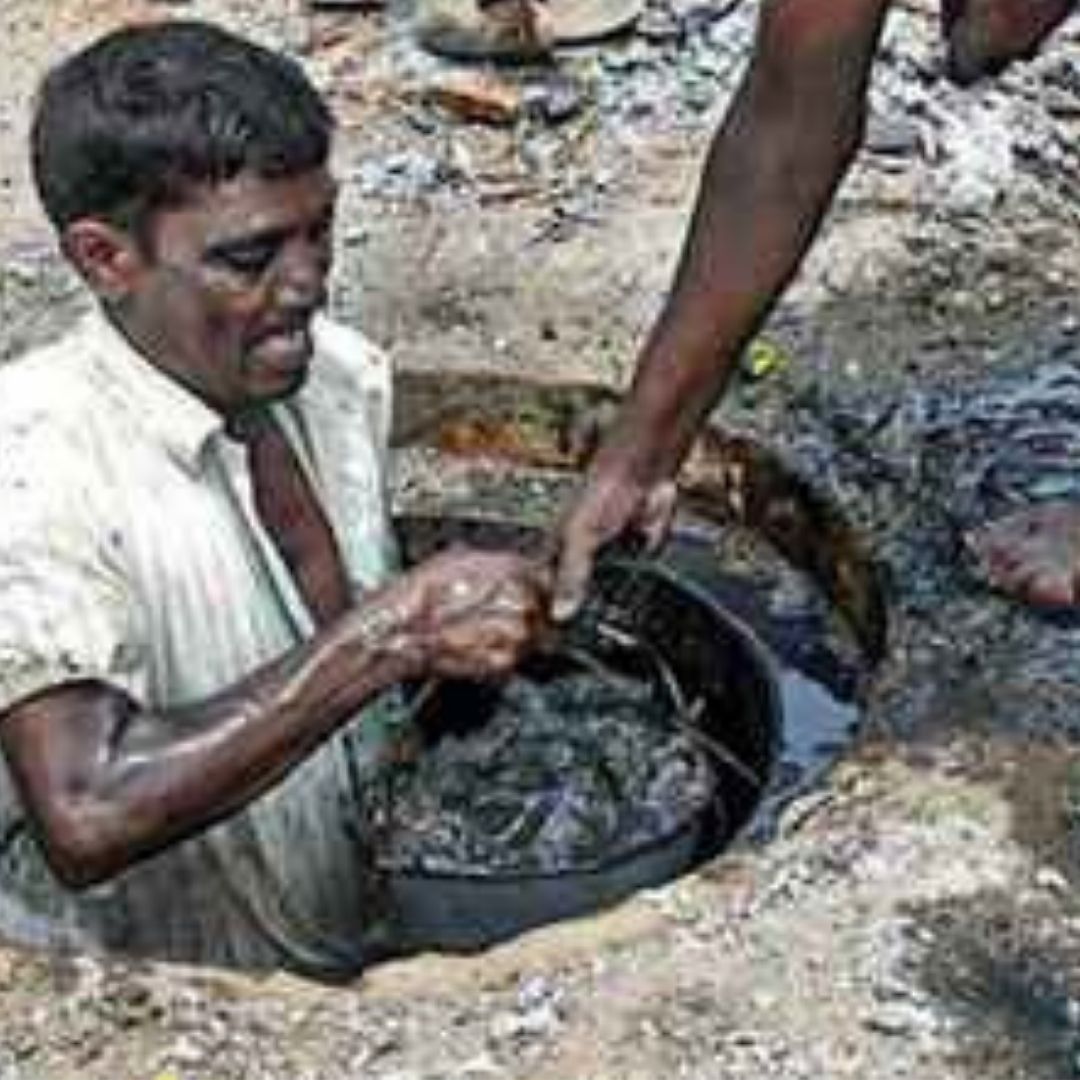
Credits: Times of India
Can IIT Madras Students' Innovation Help End Manual Scavenging?
Writer: Devyani Madaik
A media enthusiast, Devyani believes in learning on the job and there is nothing off limits when it comes to work. Writing is her passion and she is always ready for a debate as well.
Tamil Nadu, 6 Dec 2021 11:24 AM GMT
Editor : Palak Agrawal |
Palak a journalism graduate believes in simplifying the complicated and writing about the extraordinary lives of ordinary people. She calls herself a " hodophile" or in layman words- a person who loves to travel.
Creatives : Devyani Madaik
A media enthusiast, Devyani believes in learning on the job and there is nothing off limits when it comes to work. Writing is her passion and she is always ready for a debate as well.
It can be operated by one remote control and does not require a person to operate it from the inside. The machine works in phases - blades open once it enters the tank, then rotate to soften the faecal matter and then suck the matter out of the tanks.
A group of students from the mechanical engineering department and Center for Non-Destructive Testing (CNDE) of IIT Madras has developed a robot that could alternate the manpower for sewage cleaning.
It took three years for the robot 'HomoSEP' (homogeniser of septic tanks) to develop.
The machine works in phases - blades open once it enters the tank, then rotate to soften the faecal matter that hardens like clay and is settled mainly at the bottom.
This is followed by a feeding system that will take the module to the depths of the septic tanks, followed by a suction pump that will take the slurry out of the tanks, the students told The Indian Express.
The machine has a fish-type model to look into the contents and easily enter the sewers and septic tanks. The device's blades have a shaft attached to them that opens like an inverted umbrella after entering into the tanks, which are generally small in size, and shreds the matter.
It can be operated by one remote control and does not require a person to operate it from the inside. "The worst way a human can die on this planet is by cleaning human excreta. Our work motivation comes from the pain in the lives of the cleaners and deaths due to manual scavenging," the student told IE.
Manual Scavenging In India
As per the data by the Union Social Justice and Empowerment Ministry, nearly 43,797 have been identified manual scavengers, and 90 per cent of them belong to the Scheduled Castes. Despite the ban on the practices, thousands continue to do the job and die of it.
Also Read: 'Govt To Give 100-Day Leave, Good Healthcare, Housing Satisfaction To CAPF Personnel': Amit Shah
 All section
All section














